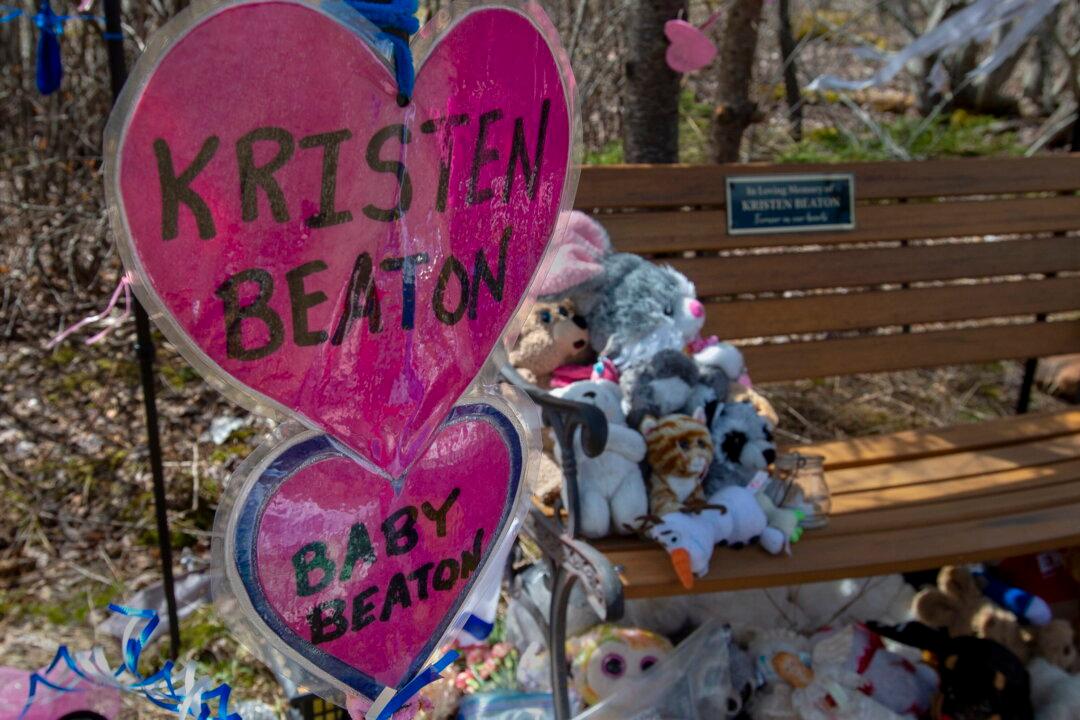DEBERT, N.S.—On days when he’s feeling up to it, Nick Beaton heads to a rural road just outside of Debert, N.S., where a makeshift memorial pays tribute to his late wife and unborn child.
It’s been almost a month since Kristen Beaton was killed by a gunman who took the lives of 21 other people during a frenzy of violence across northern and central Nova Scotia.





